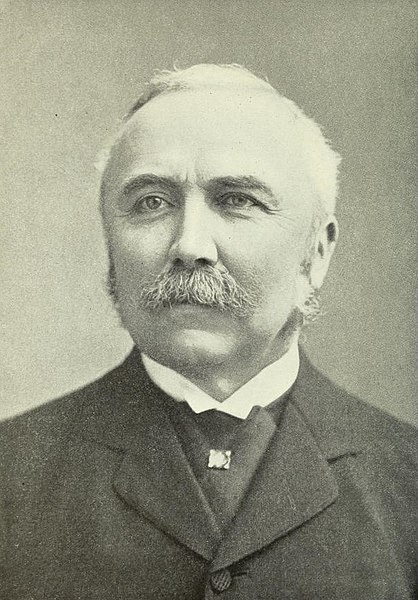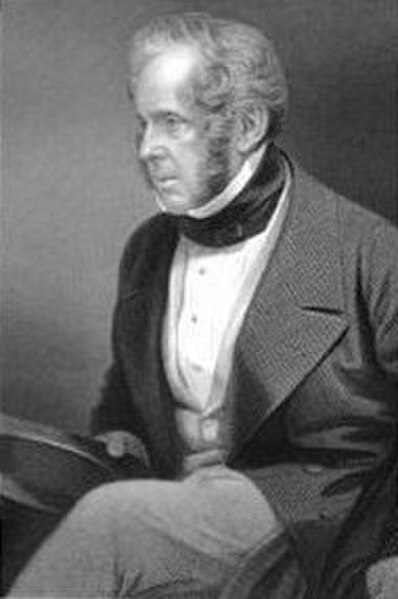Sir Henry Campbell-Bannerman was a British statesman and Liberal politician who served as Prime Minister of the United Kingdom from 1905 to 1908 and Leader of the Liberal Party from 1899 to 1908. He also served as Secretary of State for War twice, in the cabinets of Gladstone and Rosebery. He was the first first lord of the treasury to be officially called the "prime minister", the term only coming into official usage five days after he took office. He remains the only person to date to hold the positions of Prime Minister and Father of the House at the same time, and the last Liberal leader to gain a UK parliamentary majority.
Portrait by George Charles Beresford, 1902
Campbell-Bannerman caricatured by Spy for Vanity Fair, 1899
Campbell-Bannerman in 1904
Punch cartoon dated 19 February 1908, making fun of the relationship between House of Commons (Henry Campbell-Bannerman) and House of Lords (Lord Lansdowne).
The Liberal Party was one of the two major political parties in the United Kingdom, along with the Conservative Party, in the 19th and early 20th centuries. Beginning as an alliance of Whigs, free trade-supporting Peelites, and reformist Radicals in the 1850s, by the end of the 19th century, it had formed four governments under William Gladstone. Despite being divided over the issue of Irish Home Rule, the party returned to government in 1905 and won a landslide victory in the 1906 general election.
Viscount Palmerston
William Gladstone
Liberal politicians David Lloyd George and Winston Churchill enacted the 1909 People's Budget which specifically aimed at the redistribution of wealth.
Liberal poster c. 1905–1910, clockwise from the left: Joseph Chamberlain (satirised as an unmarried mother leaving her baby at a Foundling hospital) abandons his commitment to old age pensions after failing to reach agreement with the Friendly Societies; Chancellor Austen Chamberlain threatens duties on consumer items which had been removed by Gladstone (in the picture on the wall); Chinese indentured labour in South Africa; John Bull contemplates his vote; and Joseph Chamberlain and








